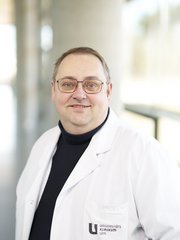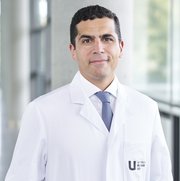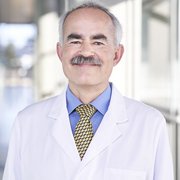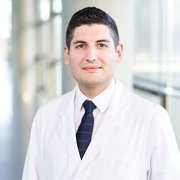- internistic

Prof. Dr. med. Thomas Seufferlein
Ärztlicher Direktor der Klinik für Innere Medizin I (Speiseröhre, Magen, Darm, Leber und Niere sowie Stoffwechselerkrankungen) und Sprecher des Darmzentrums

Dr. med. Thomas J. Ettrich
Oberarzt, Leiter Schwerpunkt GI-Onkologie, Leiter des klinischen Studienzentrums GI-Onkologie
Schwerpunkte
Gastrointestinale Onkologie, Klinische Studien

PD Dr. med. Lukas Perkhofer
Oberarzt, Facharzt für Innere Medizin und Gastroenterologie, Medikamentöse Tumortherapie
Schwerpunkte
Gastrointestinale Onkologie
Endoskopie

Dr. med. Angelika Kestler
Funktionsoberärztin, Fachärztin für Innere Medizin und Gastroenterologie, Palliativmedizin, Ärztliche Referentin für GI-Onkologie am CCCU
Schwerpunkte
Gastrointestinale Onkologie, Privatambulanz Prof. Seufferlein
- Surgical


Prof. Dr. med. Marko Kornmann
Stellv. Ärztlicher Direktor/ Koordinator Viszeral-Onkologisches Zentrum
Schwerpunkte
Bereichsleitung Bauchspeicheldrüsen-, Magen- und Speiseröhrenchirurgie

Prof. Dr. med. Emrullah Birgin
Schwerpunkte
Bereichsleitung Leber- und Gallenwegechirurgie
Ärztliche Leitung Studienzentrum
- radiooncological
Description of the disease
Malignant tumours of the pancreas are referred to as pancreatic carcinomas.
Frequency and age of onset
Tumours of the pancreas account for 2-3% of all malignant neoplasms in adults. In Germany and Europe, 10-12 males and 7-9 females per 100,000 inhabitants are diagnosed with this tumour each year. In recent years, cancers of the pancreas (pancreatic carcinomas) have steadily increased.
The tumours are often only discovered at an advanced stage. Complete surgical resection (operation) is currently the only chance of a cure. Due to the often late diagnosis and aggressive course of the disease, this cancer is the fifth most common cause of tumour-related death worldwide, despite its relatively low incidence.
The peak age is between 60 and 75 years. Around 80% of tumours are found in the head, 20% in the body and 10% in the tail of the pancreas. Around 80-90% of pancreatic tumours are glandular carcinomas that resemble the ductal structures of the normal pancreas in appearance (ductal adenocarcinoma). The other tumours are rather rare. These include endocrine tumours or acinar cell carcinomas.
Causes and risk factors
The causes of pancreatic cancer are still largely unknown. Of the external influences, only cigarette smoking has been proven to be a definite risk factor. A low-fibre, high-calorie and high-fat diet is also being discussed as a possible risk factor.
Around one in 20 patients with pancreatic cancer has another first-degree family member with this tumour. This is referred to as familial pancreatic cancer. It is not yet clear to what extent shared lifestyle habits or hereditary predispositions are responsible. In a few families, special features in the genetic information (gene mutations) have been identified that are associated with a hereditary predisposition to the development of malignant tumours. These include families in which not only pancreatic cancer but also black skin cancer (malignant melanoma) occurs, the so-called pancreatic carcinoma-melanoma syndrome, and other rare hereditary diseases. These families are very rare.
Furthermore, families with the very rare form of hereditary chronic inflammation of the pancreas (hereditary pancreatitis) have a significantly increased risk of developing pancreatic cancer up to the age of 70. Some studies indicate that patients with non-hereditary forms of chronic pancreatitis (e.g. chronic alcohol abuse) also have an increased risk of developing pancreatic cancer.
Signs of illness
Unfortunately, the symptoms of pancreatic cancer are often uncharacteristic. Patients report symptoms such as upper abdominal pain, fatigue, weight loss, fever and back pain. More specific symptoms are jaundice (icterus), a new onset of diabetes or inflammation of the pancreas. Pancreatic carcinoma should always be considered, particularly in patients >60 years of age with new back pain or diabetes, in order to avoid delays in diagnosis.
Weitere Informationen zum Pankreaskarzinom: www.krebsinformationsdienst.de/bauchspeicheldruesenkrebs
